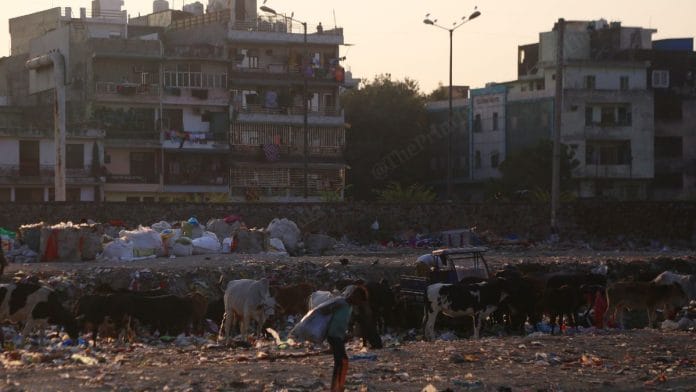Three men from the Tata Power Delhi Distribution Limited came to Adarsh Nagar’s Pakistani-Hindu settlement in Delhi to mount an electric pole. Some eyes were moist, some voices crackled with tears of happiness, and neighbours and siblings and friends and even rivals were giving each other the victory hug.
It was the end of a decade of darkness in the heart of the capital. Almost 4,000 people have been living here without electricity.
The Pakistani-Hindu refugees in Delhi illustrate the story of yet another community, which is prominent in politics but absent from policy. Persecution faced by minorities in Muslim majority countries, especially Hindus, has been the main argument of the proponents of the Citizenship Amendment Act. India wants to roll out the red carpet for persecuted Hindus from neighbouring countries.
But on ground, the community lives in neglect and destitution. Just another victim of Partition; their condition is similar to any refugee colony of the post-Partition years. The ‘Atithi Devo Bhava’ moto hasn’t been extended to them the way they have been made to struggle.

Road to electricity
Brand new switch boards are being installed in every shanty. People are either hustling to get electricians to do wiring in their house or squatting in front of a transformer being installed in the colony.
Groups of people enjoy the pleasant winter sun while breaking peanut shells just outside Nehru Lal’s house. Suleimani chai is being served as everyone stares at the installation work.
Clad in a Pathani suit and worn-down brown sweater, Nehru is idly lying on his charpoy, looking over the scene, leaning on his right elbow. Today, he is nostalgic about the long journey that has led to this moment. “The bloody mosquitos won’t be such a headache once we can power these fans,” he says.
These are exciting days for the six-feet-tall moustachioed man, the head of the Pakistani-Hindu settlement at Adarsh Nagar. Almost a decade after he zeroed in on this waste land as the new home for his and 35 more Pakistani-Hindu families in 2013, which is now right behind Majlis Park metro station, they are going to get electricity. “Things might not look good to you, but we’ve made tremendous progress,” he says. “When we first came here in June of 2013, we slept on the ground, which would emanate heat that caused blisters on our entire bodies. The police would come, demolish our houses, and we had to build them up again. And now, the Tatas are here to install electricity, it’s a huge victory for us,” he continues, beaming.
Also read: Fear or interfaith harmony? Hindus in Pakistan pay fine for temple attackers
Decades of negligence
Nehru was a successful fruit trader in Pakistan’s Hyderabad, but he says, something had changed in the air of Pakistan after the 1991 Babri Masjid demolition. “Things weren’t the same after that, were they?!” he says when asked if there was a trigger that made him leave everything behind and cross the border, 66 years after it was carved slashing India into two.
Pakistani Hindus were settled in Delhi’s Adarsh Nagar in June 2013. Around 500 people had left Sindh’s Hyderabad area and embarked on a long journey to Karachi. From there they boarded the now discontinued train to Jodhpur, the Thar Express. From Jodhpur, they came to Delhi. Initially, Nahar Singh, a Jat from Haryana gave them shelter at his two houses in Brijwasan where they stayed for three months, and started searching for a more permanent place to settle in.
Some families chose a ground at Majnu Ka Tila, some went to the Yamuna River, and a group of 35 families led by Nehru chose a barren land in Adarsh Nagar. It has not been a pleasant stay. The families have so far been living in what can only be described as a dumpster without electricity, in houses made of straw. The air here is tinged with the smell of wet garbage and mosquitoes carrying dengue and malaria are constantly dancing on everyone’s heads. Snakes are regular visitors, chasing rats.
Delhi High Court earlier this month directed Tata Power Delhi Distribution Limited to electrify the colony within a month. The work has been done swiftly, wires have already surrounded the colony, people have installed switch boards in their houses and they are just waiting for bulbs to finally light up.
So far, the colony was surviving on solar power, which the residents say is sufficient to power one bulb and a fan, along with two streetlights. And this too was made available to them in 2016. “A Non-resident Indian donated the solar power infrastructure to our colony, through which we have been able to fight darkness for the past six years,” Nehru says.
Currently, Nehru and residents are fighting to get access to clean running water, cemented roads, education and most importantly, citizenship.
While Nehru doesn’t feel entitled to ‘help’, he sounds exasperated with the way various organisations have behaved with this ever-growing community here. “Nobody supported us with all their heart, you know? They gave us old clothes and cheap ration to survive on, did photo ops and vanished into thin air,” he said.
While Nehru is a supporter of the Bharatiya Janata Party (BJP) and identifies as ‘Modi Bhakt’, he shows a hint of disappointment with Right wing organisations like Vishwa Hindu Parishad. “VHP is an international organisation. They couldn’t build us a pucca house in Delhi?” he says.
Also read: Why Kartarpur corridor won’t go the same way as Vajpayee’s Delhi-Lahore bus diplomacy
The settlement
Families that came to India looking for a better life have been grossly let down.
One enters the slum by crossing a mountain of garbage where cows and buffaloes look for food and aggressive dogs growl at you. Once inside the slum, one has to stay wary of big fat mosquitoes hovering above the head while taking each step carefully lest a snake passes by. There’s no access to safe running water, no electricity. Not even access to clean toilets. For more than 800 people, there are only four to five toilets at every corner of the slum, which forces many to venture out in the open at night to relieve themselves.
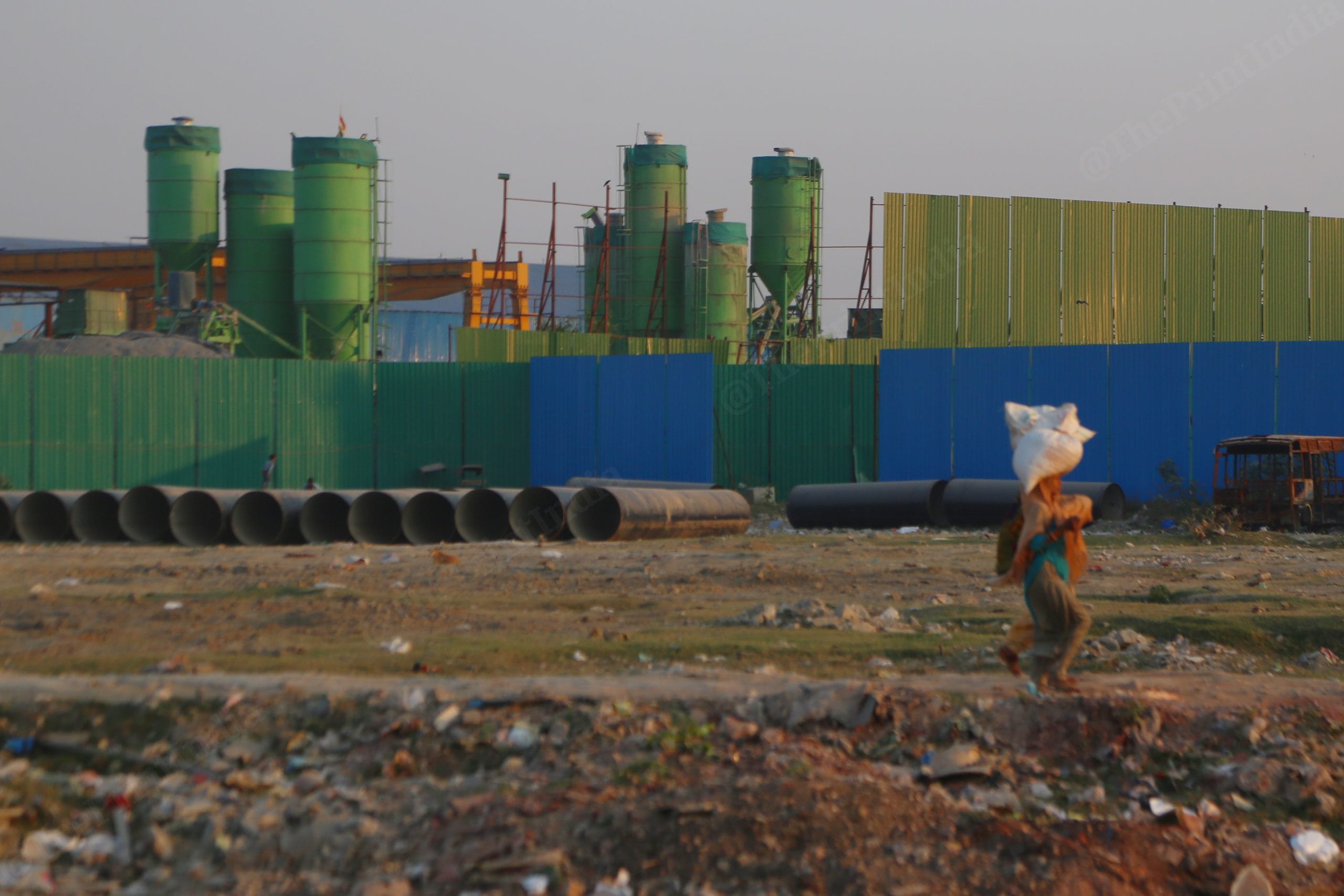
“Rats aren’t even considered a problem here. If you shake some of these walls a snake or two will fall down. Snake bites, cats and cases of dengue and malaria are painfully common here,” Hari Om adds. He is a social worker who has been working in the area since 2013.
Visible from Majlis Park metro station is a huge slum made of kuchcha houses, little children are busy making wooden houses to live in, when they should be playing with toys.
Residents say this was a waste, marshy land that they would later discover belongs to the Ministry of Defence. There were 35 families then, and now the colony has swollen up to 160 families. On an average, 35-40 families leave home in Pakistan for India every year and many of them build a home here in this settlement, according to Hari Om.
A majority of men in the settlement are vendors selling cheap mobile accessories in various markets nearby.
Nehru is still actively involved in helping Hindus left behind in Pakistan to procure visas, come to Delhi and then find a way to earn a living here. “This is the cause I have dedicated my life to,” he says.
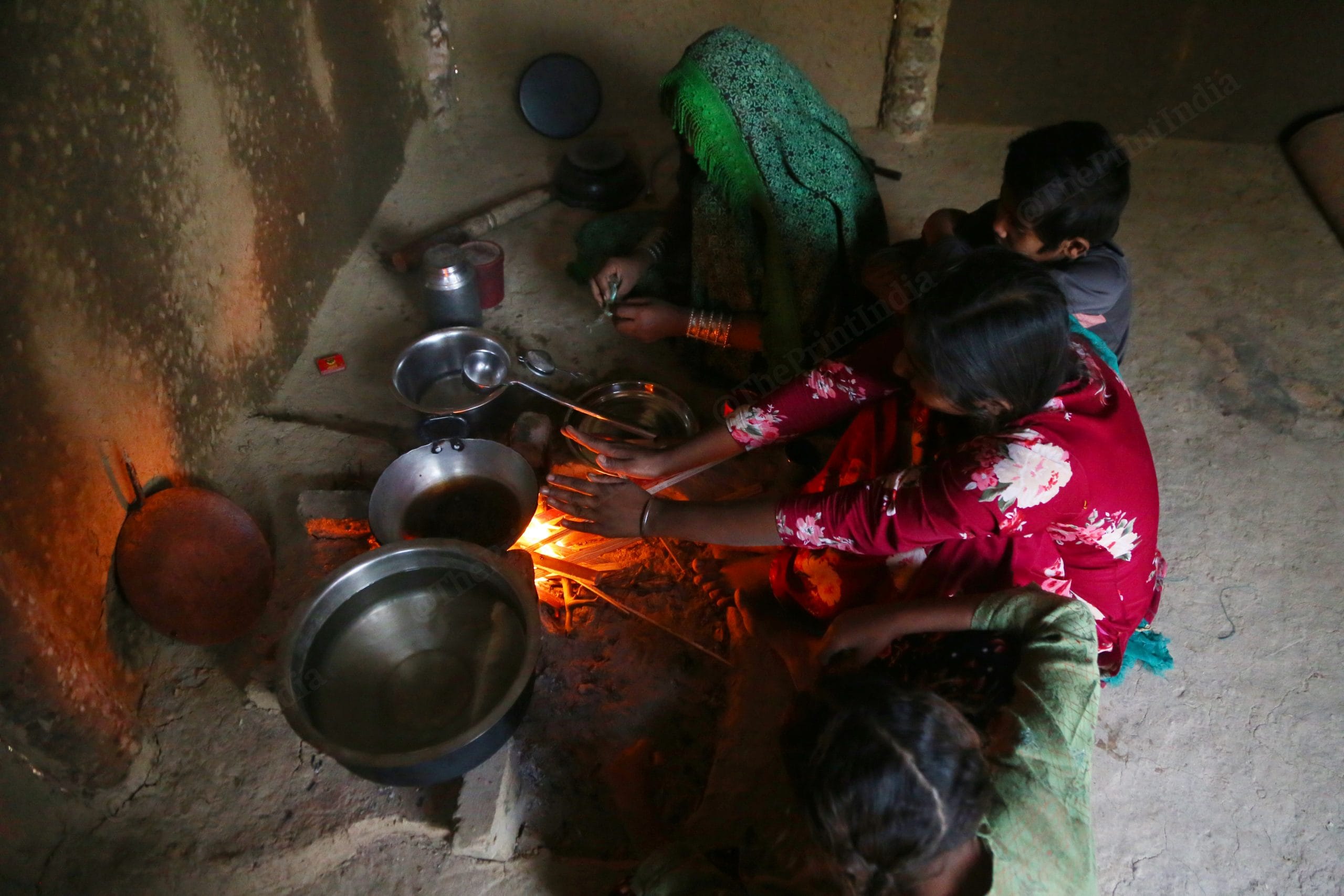
Hindus report leaving Pakistan for India because of crippling inflation and religious persecution. “Hindu girls are kidnapped the minute they reach maturity and they are converted to Islam,” says Jamuna, a homemaker, “that’s among the many problems faced by Hindus there. But dekho na, hume sadak se utha ke kachre mein daal diya (they rescued us from the road, only to dump us in garbage),” she says.
These families don’t have voting rights and they aren’t entitled to subsidies. Their children study in tuitions organised by a local NGO in the colony, and for a slum with a population of over 800 there are only four to five toilets in four corners. “We usually go to the toilet in the open at night. We catch infections if we use these toilets often,” says a 23-year-old woman who didn’t wish to be named. Hari Om said some children have started going to a nearby school run by the Municipal Corporation of Delhi (MCD).
This community of Hindus from Pakistan is constantly brought up during the election season and campaigns but it suffers from apathy from the government. “Nobody from the Delhi government has ever come here to listen to our problems. If we had any support from a political representative, it wouldn’t have taken us nine years to get access to electricity,” says Hari Om. “The only political party that visits is the Bharatiya Janata Party, especially during festive season to celebrate with us and the kids,” he says.
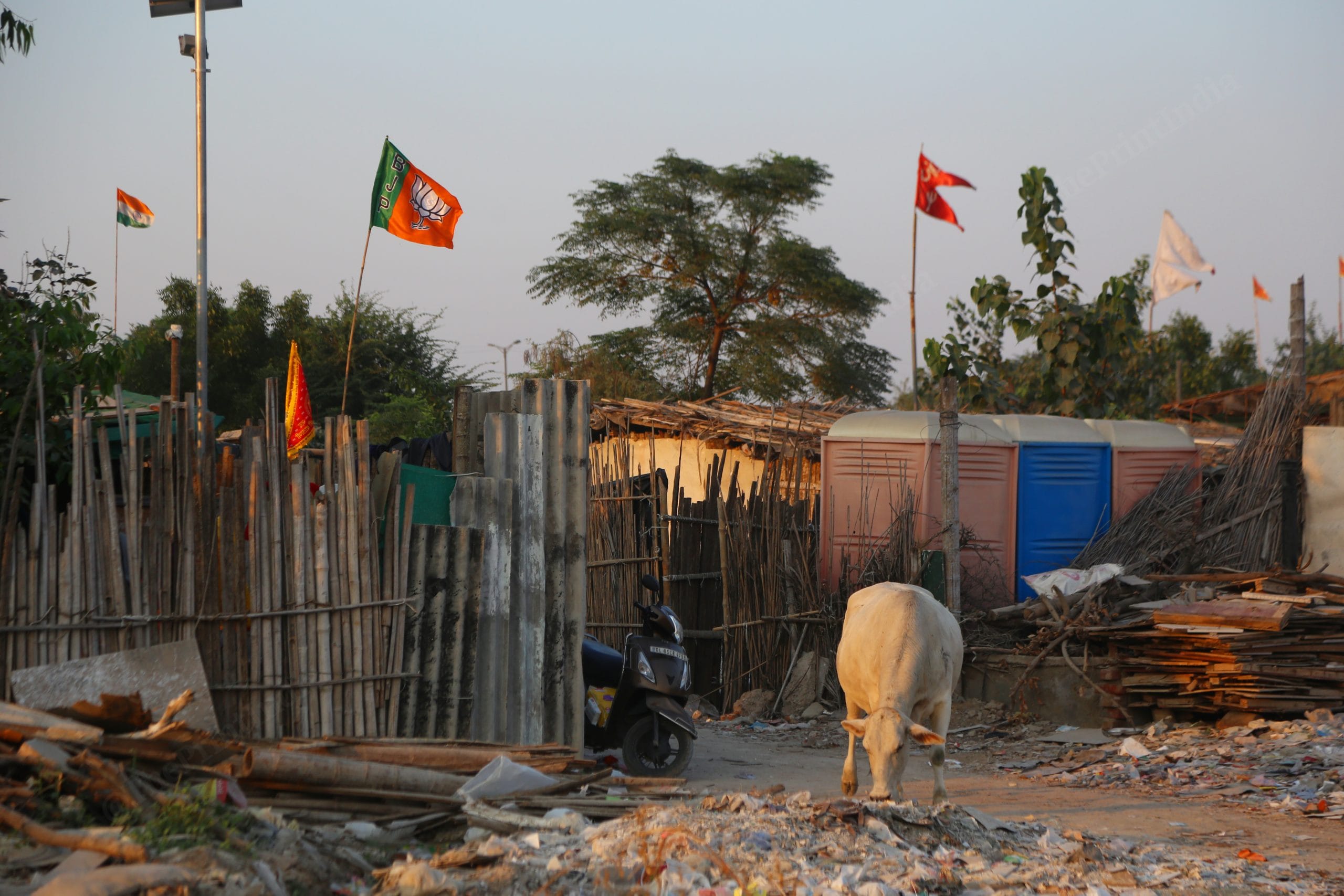
Also read: ‘Disillusioned with Kejriwal’, 7 wards in riot-hit northeast Delhi vote for Congress in MCD polls
Our country
But no matter the hardships in the colony, there’s a deep-rooted sense of patriotism for India. “Pakistan was a Muslim country, India is our country. We’re happy to be here,” says 30-year-old Jamuna, who moved here from Sindh five years ago.
The adults are much more weighed with their words than children who let their agony spill in a moment of innocence. Eight-year-old Aasha talks about the friends she left behind in Pakistan. “I really miss Aishwarya, Neeta and Bharti. I used to play Kho-Kho with them,” she says while wiping away her tears.
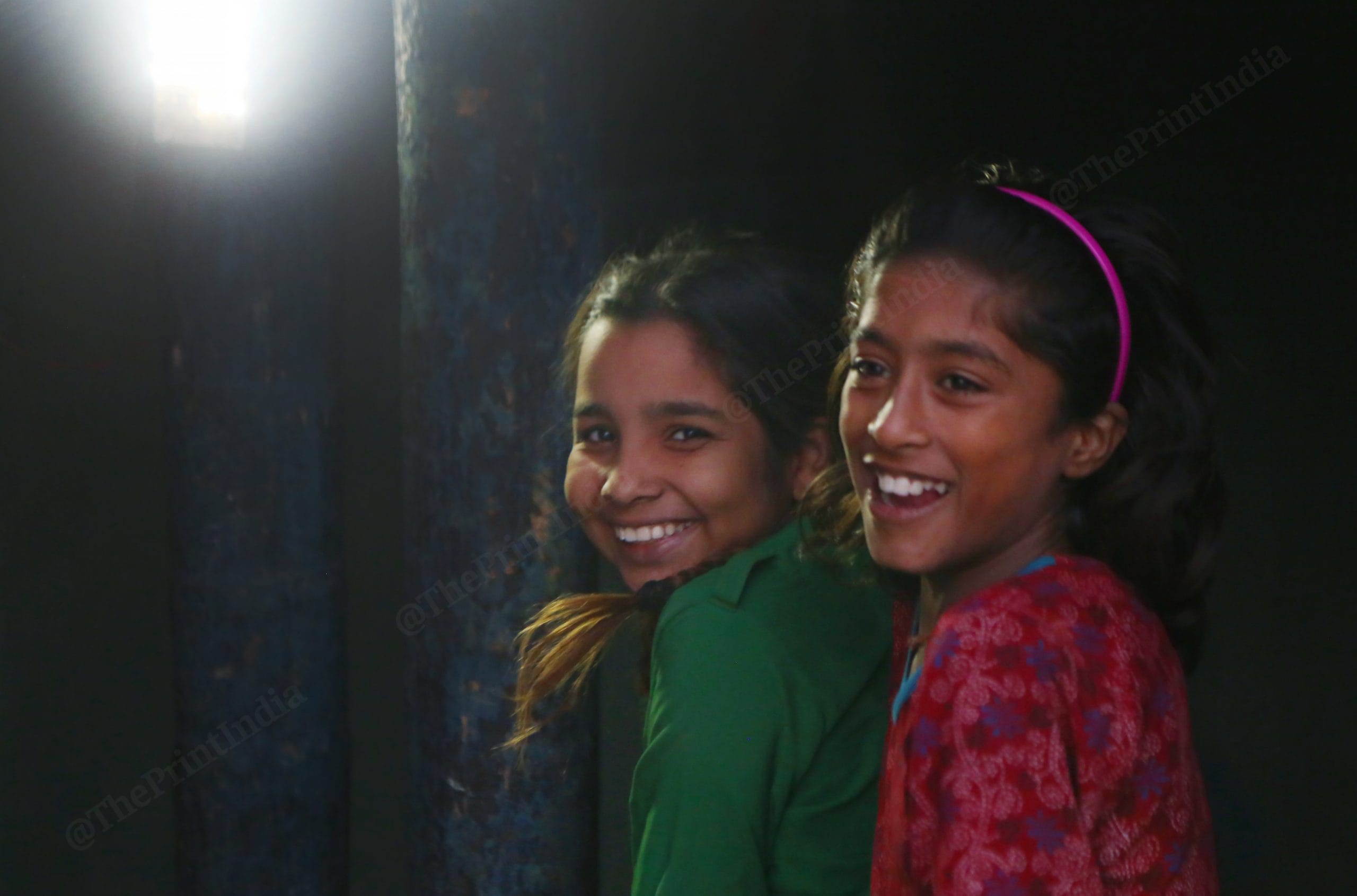
Aasha insists that her life in India is not any different from what it used to be on the other side of the border. “It’s just that I lived in a house made of bricks, here I live in a shanty. I used to go to a school and I had more space to play. We also had a cooler in our house, here we only have a fan. Other than that, it’s all the same,” she says.
Even Nehru gets nostalgic about home, “Don’t ask me what I left behind, ask who we all left behind. Parents, children, friends and relatives. We don’t even visit there if a loved one dies, it’s obviously painful, you know,” he says. “Forget even friends and family for a minute. I of course miss the land where I spent a lot of happy times. It’s not home. But it once was.”
Is this the better life he left his home for, 12-year-old Arjun must wonder as he rummages through garbage and scavenges out pieces that could help him build his new home.
The boy reached Delhi’s Adarsh Nagar from Pakistan’s Hyderabad just a few days ago with his two siblings and parents, but he doesn’t want to be recorded on camera. “If my friends in Pakistan see what I am doing, they’ll make fun of me,” he says, “Of course I am embarrassed! I don’t want them to see me in a dumping ground,” he continues. That’s the India Arjun finds himself in, one that he can’t proudly show to anyone.
(Edited by Ratan Priya)



